liver support
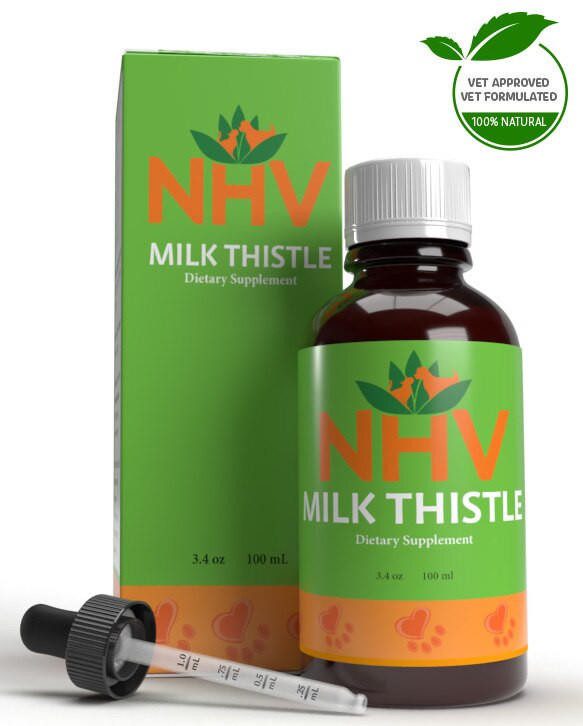
free shipping over $100 (USA & Canada)
1-877-937-4372 the pet expert hotline
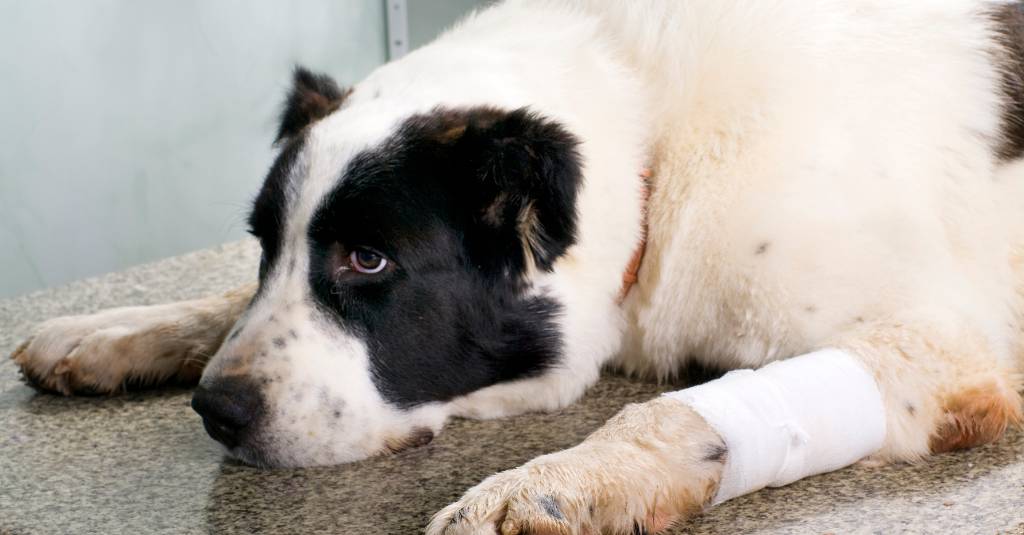
The liver is a vital organ responsible for numerous essential functions in a pet’s body, including detoxification, metabolism, and nutrient storage. However, when the liver experiences sudden and severe dysfunction, it leads to a condition known as acute liver failure, posing a significant threat to the pet’s health and well-being. This condition can develop rapidly and requires immediate attention to prevent further complications. In this blog post, we will explore the signs, causes, diagnosis, and treatment options for acute liver failure in pets, emphasizing the importance of early detection and prompt veterinary care in ensuring the best possible outcome for our furry companions.
Recognizing the signs of acute liver failure is vital for pet owners. Symptoms may manifest as jaundice (yellowing of the skin and eyes), vomiting, lethargy, seizures, loss of appetite, and abdominal swelling. Acute liver failure can have various underlying causes, including exposure to toxins such as certain medications, plants (like blue-green algae), and chemicals (such as pesticides). Infections, metabolic disorders (like diabetes), and genetic predispositions can also contribute to liver failure.
Diagnosing acute liver failure involves a comprehensive evaluation by a veterinarian. This typically includes a thorough physical examination, blood tests to assess liver enzymes and bilirubin levels, as well as imaging tests like ultrasound or X-rays to visualize the liver’s condition. Additionally, liver function tests may be conducted to determine the extent of liver damage. Treatment options may vary depending on the severity of the condition but may include hospitalization for intensive care, administration of intravenous fluids to maintain hydration and support liver function, medications to manage symptoms and address underlying causes, detoxification procedures to remove toxins from the body, and dietary adjustments to support liver health.
Supplements like NHV’s Milk Thistle and Turmeric can play a crucial role in supporting liver health and aiding in recovery. Milk Thistle contains natural ingredients such as silymarin, which has potent antioxidant and anti-inflammatory properties known for their liver-protective effects. Turmeric, with its active compound curcumin, also possesses anti-inflammatory and antioxidant properties, which can help reduce inflammation and support liver function.
Additionally, specialized diets formulated for liver health can complement treatment efforts. These diets typically consist of high-quality proteins that are easily digestible, low in fat to reduce the burden on the liver and restricted in copper content.
Recognizing the signs of acute liver failure and seeking immediate veterinary care is crucial for pet owners. By staying informed about the symptoms and potential causes of liver failure, pet owners can take proactive measures to protect their furry companions’ health. Regular veterinary check-ups, prompt intervention, and the use of supportive products like NHV’s Milk Thistle and Turmeric, along with appropriate dietary management, can significantly contribute to pets’ well-being and ensure the best possible outcome in cases of acute liver failure.
liver support

Support for liver and kidney detox and cancer support in dogs
3 month supply for a small to medium size pet
These effects help to remove chemicals and toxins that can accumulate in your dog’s system. It is one of the few herbs with no equivalent in conventional medicine.


These effects help to remove chemicals and toxins that can accumulate in your dog’s system. It is one of the few herbs with no equivalent in conventional medicine.

Milk Thistle is a powerful herb that’s been used by humans for thousands of years. The active ingredient, silymarin, has been shown through scientific studies to possess strong anti-inflammatory, antioxidant, and detoxifying properties. It also promotes cellular regeneration and repair.
This supplement by NHV Natural Pet Products uses 100% natural milk thistle to support dogs through liver and kidney conditions in addition to conventional treatment by their veterinarian.
Milk thistle improves kidney function due to the damage from:
The extraordinary antioxidant properties of milk thistle for dog extract acts to:
The scientific name for milk thistle is Silybum Marianum. It’s also referred to as wild artichoke and holy thistle.
Milk thistle for dog liver support can be used in conjunction with conventional treatments and is glycerin based and safe for long-term use. You can read more about the benefits of using milk thistle on Dr. Hillary Cook’s blog.
At NHV, all of our products including milk thistle for dog kidney support are plant-based and make excellent proactive support for many health conditions. If you have questions on milk thistle for dogs or any of our holistic supplements, you can ask an expert at NHV because we put your pet first when it comes to health and healing naturally.
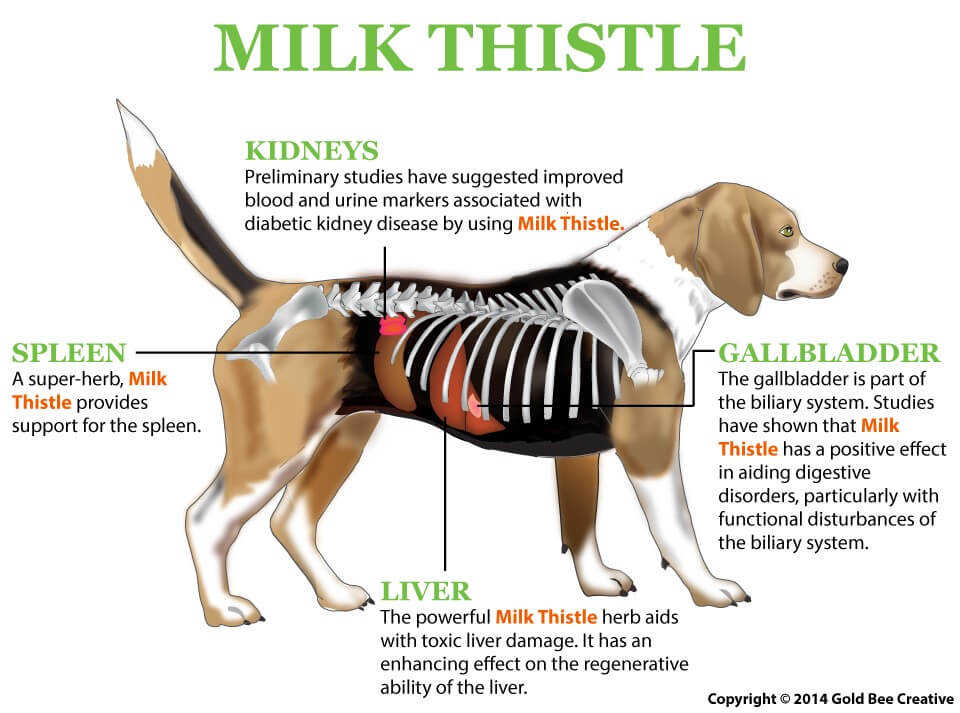
Select your pet's weight to determine the correct dose.
To be taken twice daily. Determine your pet’s weight and then use the easy chart below to determine the correct dose. This is the minimum dosage.
Pet's Weight Dosage
0 - 15 lb = 0.5 ml
16 - 30 lb = 1.0 ml
31 - 45 lb = 1.5 ml
46 - 60 lb = 2.0 ml
61 - 75 lb = 2.5 ml
Over 75 lb = 3.0 ml
How to Administer
Shake well before use. The easiest method is to use the dropper provide and places the drops into your pet’s food or favorite treat. You can also use the dropper and squirt directly into the pet’s mouth.
Some pets can be finicky, if this occurs consider hiding the drops in foods most pet’s love such as fish, chicken or yogurt or a favourite treat. If your pet only eats dry food then soak a few kibbles at feeding time.
For Best Results
Herbal dietary supplements are beneficial to the health and wellbeing of your pet and are safe for long-term use. Every pet responds to natural herbal supplements differently, therefore it is important to be consistent and administer the product daily. Supplements generally take two to four weeks to take effect, however this will vary from one animal to the next.
Product Storage
All NHV Natural Pet Products are pure herbal extracts and contain no artificial additives, preservatives or coloring. Shelf life after opening is 6 months and must be refrigerated after opening.
Cautions and Contraindications
Do not use Milk Thistle in pregnant or nursing animals. Speak to your vet before using our products. A second visit is recommended if your pet’s condition does not improve, or deteriorates after continued use of the supplements.
All information provided by NHV Natural Pet Products is for educational purposes only.
Milk Thistle is a powerful herb that’s been used by humans for thousands of years. The active ingredient, silymarin, has been shown through scientific studies to possess strong anti-inflammatory, antioxidant, and detoxifying properties. It also promotes cellular regeneration and repair.
This supplement by NHV Natural Pet Products uses 100% natural milk thistle to support dogs through liver and kidney conditions in addition to conventional treatment by their veterinarian.
Milk thistle improves kidney function due to the damage from:
The extraordinary antioxidant properties of milk thistle for dog extract acts to:
The scientific name for milk thistle is Silybum Marianum. It’s also referred to as wild artichoke and holy thistle.
Milk thistle for dog liver support can be used in conjunction with conventional treatments and is glycerin based and safe for long-term use. You can read more about the benefits of using milk thistle on Dr. Hillary Cook’s blog.
At NHV, all of our products including milk thistle for dog kidney support are plant-based and make excellent proactive support for many health conditions. If you have questions on milk thistle for dogs or any of our holistic supplements, you can ask an expert at NHV because we put your pet first when it comes to health and healing naturally.

Select your pet's weight to determine the correct dose.
To be taken twice daily. Determine your pet’s weight and then use the easy chart below to determine the correct dose. This is the minimum dosage.
Pet's Weight Dosage
0 - 15 lb = 0.5 ml
16 - 30 lb = 1.0 ml
31 - 45 lb = 1.5 ml
46 - 60 lb = 2.0 ml
61 - 75 lb = 2.5 ml
Over 75 lb = 3.0 ml
How to Administer
Shake well before use. The easiest method is to use the dropper provide and places the drops into your pet’s food or favorite treat. You can also use the dropper and squirt directly into the pet’s mouth.
Some pets can be finicky, if this occurs consider hiding the drops in foods most pet’s love such as fish, chicken or yogurt or a favourite treat. If your pet only eats dry food then soak a few kibbles at feeding time.
For Best Results
Herbal dietary supplements are beneficial to the health and wellbeing of your pet and are safe for long-term use. Every pet responds to natural herbal supplements differently, therefore it is important to be consistent and administer the product daily. Supplements generally take two to four weeks to take effect, however this will vary from one animal to the next.
Product Storage
All NHV Natural Pet Products are pure herbal extracts and contain no artificial additives, preservatives or coloring. Shelf life after opening is 6 months and must be refrigerated after opening.
Cautions and Contraindications
Do not use Milk Thistle in pregnant or nursing animals. Speak to your vet before using our products. A second visit is recommended if your pet’s condition does not improve, or deteriorates after continued use of the supplements.
All information provided by NHV Natural Pet Products is for educational purposes only.
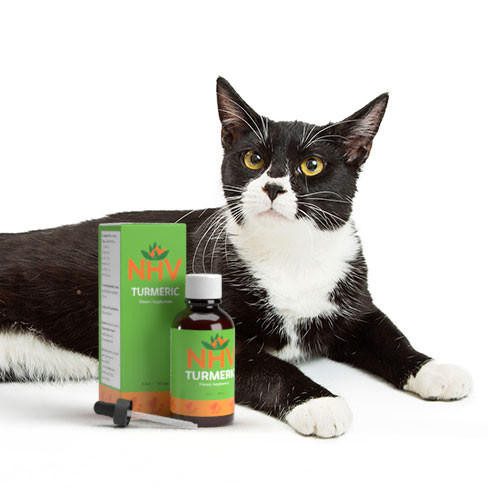
Turmeric - A supper food that is beneficial for over all wellbeing
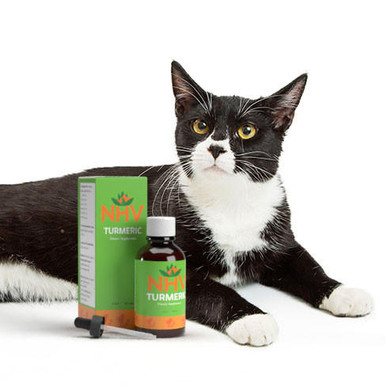
Turmeric - A supper food that is beneficial for over all wellbeing